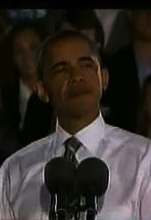How to recognize the union tax
With the election over, state legislatures will begin meeting early next year to deal with, among other things, state budgets. Of course, it is no secret that virtually every state is facing serious financial difficulties, and, let’s face it, significantly decreased tax revenue over the past few years. So, balancing the budgets won’t be easy.
The State of Washington is illustrative.
In a recent article for the Seattle Times, one local businessman pointed out that 60% of the state budget is untouchable because it relates to salaries and benefits for public employees that are governed by union contracts. At a time when the government is facing shortfalls totalling $4.5 billion, he says that the government unions “have more control over our state budget than we the people have.” [emphasis supplied]
With that amount of the state’s budget “off limits”, there was a ballot issue in the recent election that would have instituted a new income tax, but, you guessed it, only “on the rich”. According to the proponents of this new tax, the money was needed to help maintain services for the poor, the elderly, the sick, and the children, or, as Jim would say, “the human shields”.
And, who were the proponents? Some two thirds of the money raised to campaign for this tax came from the unions, and, of that, most of it came from the SEIU and the teachers union.
Here is the dilemma. No politician would ever tell his or her constituants that their taxes must be increased to pay for the ever increasing salaries, health care costs and pensions of government employees. After all, it was the union and non-union government employees who, to a large extent, may have gotten them elected.
But, as those costs continue to rise, fewer and fewer dollars are left to take care of the poor, the elderly, the sick and the children. Consequently, politicians point to those most in need as the reason for higher taxes, when, in reality, the real culprit is the “fixed cost” of government union employees.
So, when your Governor says that taxes must be raised to take care of the the poor, the elderly, the sick and the children, understand what he or she really means. The unions are consuming so much of our income that we are no longer able to do what we should be doing without raising taxes.
The American public will eventually realize this, and, when they do, we may finally restore sanity to state government. Those most in need will come first, not a distant second.
By the way, the voters in Washington got it. They voted overwhelming against a state income tax “on the rich”.
7 Comments

The website's content and articles were migrated to a new framework in October 2023. You may see [shortcodes in brackets] that do not make any sense. Please ignore that stuff. We may fix it at some point, but we do not have the time now.
You'll also note comments migrated over may have misplaced question marks and missing spaces. All comments were migrated, but trackbacks may not show.
The site is not broken.

Politicians lie? Who knew. (Pithy enough Jim?)
If all the teachers in this country are poor, elderly, sick children, our education system is in worse shape than I thought. I guess we have to learn to read between these politicians' very skewed lines if we're to understand exactly whom the beneficiaries are of our increased taxes.
"So, when your Governor says that taxes must be raised to take care of the the poor, the elderly, the sick and the children, understand what he or she really means."
And don't forget the old standbys they drag out every time they want more money: the police, fire and teachers.
Now that the problem has been identified for the State of Washington, let's hear a solution. Seems unlikely that salaries etc. for union members cannot unilaterally be cut, so what is going to be done? I also can point to many problems, but I have no solutions for them.
Patriotic renegotiation.
Well, here's a solution that has "helped" in the private sector:
LAYOFFS!
Hey, the bandage hurts more when it's pulled-off slow.
You guys are funny, but far from realistic. This is a serious/real problem that does not go away w/ a flick-off.